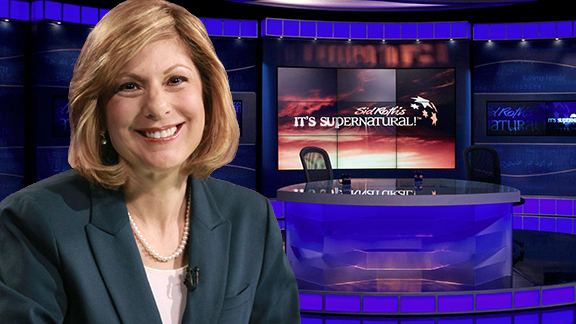Our Guest Sandra Teplinsky

SID: As far as I’m concerned, if you do not understand the Biblical position, God’s heart for the Jew in Israel in the Last Days, you will go into further and further heresy. It’s that critical. Now there’s something called “Replacement Theology.” And I’ve asked an attorney, a Jewish believer in the Messiah, someone that has spent many years in the land of Israel, Sandra Teplinsky, to explain, let’s just start with basics, Sandy. What is replacement theology?
SANDY: Like its name implies replacement—
SID: Excuse me, can you see that she is an attorney…” like its name implies—”
SANDY: (Laughing)
SID: (Laughing) I’m sorry, I couldn’t resist, okay?
SANDY: I get it all the time.
SID: Oh, okay. (laughing)
SANDY: Replacement Theology is the mistaken, in fact, extremely erroneous belief that the Church has replaced Israel in God’s heart and in God’s purposes and plans.
SID: Well, how did something so Jewish, the first believers in Jesus were all Jews. How in the world did it evolve to that?
SANDY: Well Jewish believers in the first century were doing their job very well. They spread the Gospel abroad and before long—
SID: I read about them. In the Bible! They did well. I wish the Church would do as well today!
SANDY: And before long Gentile believers vastly outnumbered Jewish believers simply because there were many, many more Gentiles in the world than there are Jews.
SID: Sure.
SANDY: And so as Gentile believers increasingly populated the church as God intended and as it was His heart and is His heart to do, slowly over time, although not that slowly, the traditional Jewish understanding of interpreting the scriptures, of worshipping the God of Israel became replaced by a more “user-friendly” pagan perspective that would draw in more non-Jews and of course those were the people to whom the non-Jewish Gentile believers were reaching out to. And so there was a desire to incorporate elements of the culture that were actually anti-God and anti-Biblical which over time became part of the institutionalized church.
SID: You know a lot of Christians don’t understand this, but there actually was, as I understand, a distancing from anything of the Hebraic culture which then caused the understanding of the Bible to be askew.
SANDY: Sadly, that was the case and intentionally so. Early Church Fathers intentionally attempted to distance themselves from anything Jewish, again partly because it was contrary to the common culture of the day, but also because this notion of what’s called “deicide” set in, which is the belief that the Jewish people were responsible for killing Christ.
SID: You know a lot of you don’t understand this, but I understand it, because as a young Jew growing up before I knew the Messiah even, I had someone say to me I was a “Christ killer.” I bet you had that too.
SANDY: Many times.
SID: But it started way back then.
SANDY: It started way back then which gives us a clue as to the importance and significance of the Jewish people and Israel in God’s plans, that the enemy would go to such extremes and such lengths in order to distort scriptural understanding by the Gentile world.
SID: You know the Jewish historian Neander says by the turn of the first century there were approximately a million Jewish believers in Jesus and—they just, I guess as the church turned away from anything Jewish, Judaism turned from, away from anything Christian, and that’s what Paul was talking about, there was a middle wall of separation between the two.
